PCAST Members
John P. Holdren (co-chair) is Assistant to the President for Science and Technology and Director of the Office of Science and Technology Policy (OSTP) in the Executive Office of the President. Prior to this appointment, Dr. Holdren was a Professor of Environmental Policy and Director of the Program on Science, Technology, and Public Policy at Harvard University's Kennedy School of Government. He also served concurrently as Professor of Environmental Science and Policy in Harvard's Department of Earth and Planetary Sciences and as Director of the independent, nonprofit Woods Hole Research Center. He is a member of the National Academy of Sciences, the National Academy of Engineering, and the American Academy of Arts and Sciences, as well as a former President of the American Association for the Advancement of Science and recipient of the MacArthur Foundation Prize Fellowship.
 Eric Lander (co-chair) is the President and Director of the Broad Institute of MIT and Harvard and co-chair of PCAST. He is also Professor of Biology at MIT and Professor of Systems Biology at Harvard Medical School. Lander was one of the principal leaders of the Human Genome Project, leading the largest center in the international project. Over the past 25 years, Lander and colleagues have developed many of the key tools and generated many of the key information resources of modern human genomics. Lander earned his BA in mathematics from Princeton University in 1978 and PhD in mathematics from Oxford University in 1981 as a Rhodes Scholar. He was an assistant and associate professor of managerial economics at the Harvard Business School from 1981-1990. He has co-founded several successful biotechnology companies. Lander is the recipient of numerous awards, including the MacArthur Foundation Prize Fellowship, the Gairdner International Prize and the Albany Prize in Biomedicine. He is a member of both the National Academy of Sciences and Institute of Medicine.
Eric Lander (co-chair) is the President and Director of the Broad Institute of MIT and Harvard and co-chair of PCAST. He is also Professor of Biology at MIT and Professor of Systems Biology at Harvard Medical School. Lander was one of the principal leaders of the Human Genome Project, leading the largest center in the international project. Over the past 25 years, Lander and colleagues have developed many of the key tools and generated many of the key information resources of modern human genomics. Lander earned his BA in mathematics from Princeton University in 1978 and PhD in mathematics from Oxford University in 1981 as a Rhodes Scholar. He was an assistant and associate professor of managerial economics at the Harvard Business School from 1981-1990. He has co-founded several successful biotechnology companies. Lander is the recipient of numerous awards, including the MacArthur Foundation Prize Fellowship, the Gairdner International Prize and the Albany Prize in Biomedicine. He is a member of both the National Academy of Sciences and Institute of Medicine.
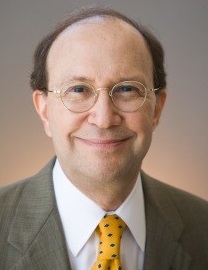 William Press (vice-chair) is the Warren J. and Viola M. Raymer Professor of Computer Science and Integrative Biology at the University of Texas at Austin and has wide-ranging expertise in computer science, theoretical physics, astrophysics, computational biology, and international security. A member of the National Academy of Sciences, he previously served as Deputy Laboratory Director for Science and Technology at the Los Alamos National Laboratory from 1998 to 2004. He was a Professor of Astronomy and Physics at Harvard University from 1976 to 1998. He was the 2012-2013 President of the American Association for the Advancement of Science.
William Press (vice-chair) is the Warren J. and Viola M. Raymer Professor of Computer Science and Integrative Biology at the University of Texas at Austin and has wide-ranging expertise in computer science, theoretical physics, astrophysics, computational biology, and international security. A member of the National Academy of Sciences, he previously served as Deputy Laboratory Director for Science and Technology at the Los Alamos National Laboratory from 1998 to 2004. He was a Professor of Astronomy and Physics at Harvard University from 1976 to 1998. He was the 2012-2013 President of the American Association for the Advancement of Science.
 Maxine Savitz (vice-chair) is retired general manager of Technology Partnerships at Honeywell, Inc. and has more than 30 years of experience managing research, development and implementation programs for the public and private sectors, including in the aerospace, transportation, and industrial sectors. From 1979 to 1983 she served as Deputy Assistant Secretary for Conservation in the US Department of Energy. She recently completed two terms 2008-2014, as Vice President of the National Academy of Engineering.
Maxine Savitz (vice-chair) is retired general manager of Technology Partnerships at Honeywell, Inc. and has more than 30 years of experience managing research, development and implementation programs for the public and private sectors, including in the aerospace, transportation, and industrial sectors. From 1979 to 1983 she served as Deputy Assistant Secretary for Conservation in the US Department of Energy. She recently completed two terms 2008-2014, as Vice President of the National Academy of Engineering.
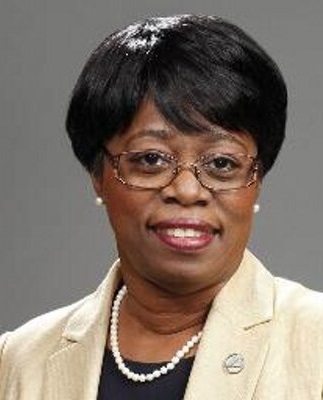 Wanda M. Austin is president and chief executive officer of The Aerospace Corporation, a leading architect for the nation’s national security space programs. She assumed this position on January 1, 2008. She is internationally recognized for her work in satellite and payload system acquisition, systems engineering, and system simulation. Austin served on President Obama’s Review of Human Spaceflight Plans Committee in 2009, was appointed to the Defense Science Board in 2010, and was appointed to the NASA Advisory Council in 2014. Austin earned a bachelor’s degree in mathematics from Franklin & Marshall College, master’s degrees in systems engineering and mathematics from the University of Pittsburgh, and a doctorate in systems engineering from the University of Southern California. Austin is a fellow of the AIAA, and is a member of the National Academy of Engineering, the International Academy of Astronautics, and the American Academy of Arts and Sciences. She also serves on the Board of Directors of the Space Foundation, and on the Board of Trustees for the University of Southern California and the National Geographic Society. Austin has received numerous awards and citations. Among them are the National Intelligence Medallion for Meritorious Service, the Air Force Scroll of Achievement, and the National Reconnaissance Office Gold Medal. In 2010 she received the AIAA von Braun Award for Excellence in Space Program Management, and is a recipient of the 2012 Horatio Alger Award, the 2012 NDIA Peter B. Teets Industry Award, and the 2014 USC Viterbi Distinguished Alumni Award.
Wanda M. Austin is president and chief executive officer of The Aerospace Corporation, a leading architect for the nation’s national security space programs. She assumed this position on January 1, 2008. She is internationally recognized for her work in satellite and payload system acquisition, systems engineering, and system simulation. Austin served on President Obama’s Review of Human Spaceflight Plans Committee in 2009, was appointed to the Defense Science Board in 2010, and was appointed to the NASA Advisory Council in 2014. Austin earned a bachelor’s degree in mathematics from Franklin & Marshall College, master’s degrees in systems engineering and mathematics from the University of Pittsburgh, and a doctorate in systems engineering from the University of Southern California. Austin is a fellow of the AIAA, and is a member of the National Academy of Engineering, the International Academy of Astronautics, and the American Academy of Arts and Sciences. She also serves on the Board of Directors of the Space Foundation, and on the Board of Trustees for the University of Southern California and the National Geographic Society. Austin has received numerous awards and citations. Among them are the National Intelligence Medallion for Meritorious Service, the Air Force Scroll of Achievement, and the National Reconnaissance Office Gold Medal. In 2010 she received the AIAA von Braun Award for Excellence in Space Program Management, and is a recipient of the 2012 Horatio Alger Award, the 2012 NDIA Peter B. Teets Industry Award, and the 2014 USC Viterbi Distinguished Alumni Award.
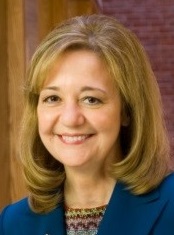
Rosina Bierbaum is a professor and former Dean of the School of Natural Resources and Environment at the University of Michigan. She has worked at the intersection of science and policy for more than 20 years, including serving as Associate Director for Environment in OSTP in the Clinton Administration and Acting Director of OSTP in 2000-2001. Dr. Bierbaum is a Fellow of the American Association for the Advancement of Science and the American Academy of Arts and Sciences. She was awarded the Climate Protection Award from the US Environmental Protection Agency for scientific leadership in climate protection (1999), the American Geophysical Union’s Waldo E. Smith Medal in recognition of extraordinary service to geophysics (2000), and the Ecological Society of America’s Distinguished Service Citation (2010) for application of ecology in the public welfare. Her PhD is in evolutionary biology and ecology.
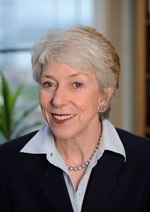 Christine Cassel is the Planning Dean of the Kaiser Permanente School of Medicine, as of March 1, 2016. Previously, she was the President and CEO of the National Quality Forum. She also served as president and CEO of the American Board of Internal Medicine and the ABIM Foundation. Dr. Cassel is one of 20 scientists chosen by President Obama to serve on the President's Council of Advisors on Science and Technology (PCAST), which advises the President in areas where an understanding of science, technology, and innovation is key to forming responsible and effective policy. She is the co-chair and physician leader of PCAST working groups that have made recommendations to the President on issues relating to health information technology scientific innovation in drug development and evaluation, systems engineering in healthcare, and technology for an aging population. Dr. Cassel served as dean of the School of Medicine and vice-president for medical affairs at Oregon Health and Science University. She was formerly chair of the Department of Geriatrics and Adult Development and professor of geriatrics and medicine at Mount Sinai School of Medicine. She is a leading expert in geriatric medicine, medical ethics, and quality of care. Among her many professional achievements and honors, Dr. Cassel is a member of the Institute of Medicine, was the first female President of the American College of Physicians and, subsequently, Chair of the American Board of Internal Medicine; she served as Chair of the Board of the Greenwall Foundation, supporting work in bioethics; was the President of the American Federation for Aging Research; and was a member of the Advisory Committee for the Director at the National Institutes of Health. She has received numerous honorary degrees and is a Fellow of the Royal Colleges of Medicine of the UK and Canada. Her latest book is Medicare Matters: What Geriatric Medicine Can Teach American Health Care.
Christine Cassel is the Planning Dean of the Kaiser Permanente School of Medicine, as of March 1, 2016. Previously, she was the President and CEO of the National Quality Forum. She also served as president and CEO of the American Board of Internal Medicine and the ABIM Foundation. Dr. Cassel is one of 20 scientists chosen by President Obama to serve on the President's Council of Advisors on Science and Technology (PCAST), which advises the President in areas where an understanding of science, technology, and innovation is key to forming responsible and effective policy. She is the co-chair and physician leader of PCAST working groups that have made recommendations to the President on issues relating to health information technology scientific innovation in drug development and evaluation, systems engineering in healthcare, and technology for an aging population. Dr. Cassel served as dean of the School of Medicine and vice-president for medical affairs at Oregon Health and Science University. She was formerly chair of the Department of Geriatrics and Adult Development and professor of geriatrics and medicine at Mount Sinai School of Medicine. She is a leading expert in geriatric medicine, medical ethics, and quality of care. Among her many professional achievements and honors, Dr. Cassel is a member of the Institute of Medicine, was the first female President of the American College of Physicians and, subsequently, Chair of the American Board of Internal Medicine; she served as Chair of the Board of the Greenwall Foundation, supporting work in bioethics; was the President of the American Federation for Aging Research; and was a member of the Advisory Committee for the Director at the National Institutes of Health. She has received numerous honorary degrees and is a Fellow of the Royal Colleges of Medicine of the UK and Canada. Her latest book is Medicare Matters: What Geriatric Medicine Can Teach American Health Care.
 Christopher Chyba is professor of astrophysics and international affairs at Princeton University, where he directs the Program on Science and Global Security. Chyba served on the national security staff in the Clinton Administration, entering as a White House Fellow, and is a recipient of the Presidential Early Career Award and MacArthur prize. His scientific research focuses on solar system exploration and astrobiology, and his security related work emphasizes nuclear, biological, and space arms control and non-proliferation.
Christopher Chyba is professor of astrophysics and international affairs at Princeton University, where he directs the Program on Science and Global Security. Chyba served on the national security staff in the Clinton Administration, entering as a White House Fellow, and is a recipient of the Presidential Early Career Award and MacArthur prize. His scientific research focuses on solar system exploration and astrobiology, and his security related work emphasizes nuclear, biological, and space arms control and non-proliferation.
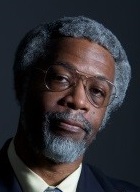 S. James Gates, Jr. is the John S. Toll Professor of Physics, University System of Maryland Regents Professor, and Director of the Center for String and Particle Theory at the University of Maryland, College Park. Currently Dr. Gates is a member of the Maryland State Board of Education. He has served as a consultant to the National Science Foundation, the US Departments of Energy and Defense, and the Educational Testing Service and held appointments at MIT, Harvard, California Institute of Technology and Howard University. Dr. Gates is a Fellow of the American Physics Society, the American Association for the Advancement of Science, and the National Society of Black Physicists. He is a member of the National Academy of Sciences and a recipient of the National Medal of Science.
S. James Gates, Jr. is the John S. Toll Professor of Physics, University System of Maryland Regents Professor, and Director of the Center for String and Particle Theory at the University of Maryland, College Park. Currently Dr. Gates is a member of the Maryland State Board of Education. He has served as a consultant to the National Science Foundation, the US Departments of Energy and Defense, and the Educational Testing Service and held appointments at MIT, Harvard, California Institute of Technology and Howard University. Dr. Gates is a Fellow of the American Physics Society, the American Association for the Advancement of Science, and the National Society of Black Physicists. He is a member of the National Academy of Sciences and a recipient of the National Medal of Science.
 Mark Gorenberg founded Zetta Venture Partners in 2013, an early stage fund focused on the enterprise analytics market. Prior to Zetta Venture Partners, Mark served as managing director at Hummer Winblad, the first focused fund for enterprise software. There, his most publicized successes in analytics included Omniture (IPO and acquired by Adobe); AdForce (IPO and acquired by CMGI) and Scopus Technologies (IPO and acquired by Seibel Systems). Prior to his venture capital career, Mark served as an engineering director at Sun Microsystems in Advanced R&D. Today, Mark also serves on the President’s Council of Advisors on Science and Technology (PCAST), the Board of Trustees for Massachusetts Institute of Technology; the Board of the National Venture Capital Association and the FCC’s Technological Advisory Council. Mark graduated from MIT and received Masters degrees from the University of Minnesota and Stanford University.
Mark Gorenberg founded Zetta Venture Partners in 2013, an early stage fund focused on the enterprise analytics market. Prior to Zetta Venture Partners, Mark served as managing director at Hummer Winblad, the first focused fund for enterprise software. There, his most publicized successes in analytics included Omniture (IPO and acquired by Adobe); AdForce (IPO and acquired by CMGI) and Scopus Technologies (IPO and acquired by Seibel Systems). Prior to his venture capital career, Mark served as an engineering director at Sun Microsystems in Advanced R&D. Today, Mark also serves on the President’s Council of Advisors on Science and Technology (PCAST), the Board of Trustees for Massachusetts Institute of Technology; the Board of the National Venture Capital Association and the FCC’s Technological Advisory Council. Mark graduated from MIT and received Masters degrees from the University of Minnesota and Stanford University.
 Susan L. Graham is the Pehong Chen Distinguished Professor of Electrical Engineering and Computer Science Emerita at the University of California, Berkeley. She received an AB in mathematics from Harvard University and MS and PhD degrees in Computer Science from Stanford University. Her research includes programming language design and implementation, software tools, software development environments, and high-performance computing. Dr. Graham has served on numerous advisory and visiting committees and has been a consultant to a variety of companies. She was a member of the President’s Information Technology Advisory Committee (PITAC) from 1997 to 2003. She served as the Chief Computer Scientist for the National Partnership for Advanced Computational Infrastructure (NPACI) from 1997 to 2005. She currently chairs the Computing Research Association’s Computing Community Consortium. Dr. Graham is a member of the National Academy of Engineering and the American Academy of Arts and Sciences, and she is a Fellow of the American Association for the Advancement of Science, the Association for Computing Machinery (ACM), and the Institute of Electrical and Electronics Engineers (IEEE). Her honors include the Harvard Medal, the IEEE von Neumann Medal, the Berkeley Citation, and the ACM/IEEE Ken Kennedy Award. She was named a University of California Berkeley Fellow in 2011.
Susan L. Graham is the Pehong Chen Distinguished Professor of Electrical Engineering and Computer Science Emerita at the University of California, Berkeley. She received an AB in mathematics from Harvard University and MS and PhD degrees in Computer Science from Stanford University. Her research includes programming language design and implementation, software tools, software development environments, and high-performance computing. Dr. Graham has served on numerous advisory and visiting committees and has been a consultant to a variety of companies. She was a member of the President’s Information Technology Advisory Committee (PITAC) from 1997 to 2003. She served as the Chief Computer Scientist for the National Partnership for Advanced Computational Infrastructure (NPACI) from 1997 to 2005. She currently chairs the Computing Research Association’s Computing Community Consortium. Dr. Graham is a member of the National Academy of Engineering and the American Academy of Arts and Sciences, and she is a Fellow of the American Association for the Advancement of Science, the Association for Computing Machinery (ACM), and the Institute of Electrical and Electronics Engineers (IEEE). Her honors include the Harvard Medal, the IEEE von Neumann Medal, the Berkeley Citation, and the ACM/IEEE Ken Kennedy Award. She was named a University of California Berkeley Fellow in 2011.
 J. Michael McQuade is Senior Vice President for Science & Technology at United Technologies Corporation, where he provides strategic oversight and guidance for research, engineering and development activities throughout the business units of the corporation and at the United Technologies Research Center, focusing on a broad range of high-technology products and services to the global aerospace and building systems industries. Prior to joining UTC in 2006, Dr. McQuade served as Vice President of 3M’s Medical Division, and before that he was President of Eastman Kodak’s Health Imaging Business. His early career at 3M was focused on research and development of high-end acquisition, processing and display systems for health care, industrial imaging and remote sensing. Dr. McQuade holds PhD, MS and BS degrees in physics from Carnegie Mellon University. He received his PhD in experimental high-energy physics for research on charm quark production performed at the Fermi National Accelerator Laboratory. Dr. McQuade is a member of the Board of Trustees for Carnegie Mellon University, the Board of Directors of Project HOPE, and the Board of Trustees for Miss Porter’s School. He serves on advisory and visiting boards for a number of university science and engineering schools. He currently serves as a member of the Secretary of Energy Advisory Board.
J. Michael McQuade is Senior Vice President for Science & Technology at United Technologies Corporation, where he provides strategic oversight and guidance for research, engineering and development activities throughout the business units of the corporation and at the United Technologies Research Center, focusing on a broad range of high-technology products and services to the global aerospace and building systems industries. Prior to joining UTC in 2006, Dr. McQuade served as Vice President of 3M’s Medical Division, and before that he was President of Eastman Kodak’s Health Imaging Business. His early career at 3M was focused on research and development of high-end acquisition, processing and display systems for health care, industrial imaging and remote sensing. Dr. McQuade holds PhD, MS and BS degrees in physics from Carnegie Mellon University. He received his PhD in experimental high-energy physics for research on charm quark production performed at the Fermi National Accelerator Laboratory. Dr. McQuade is a member of the Board of Trustees for Carnegie Mellon University, the Board of Directors of Project HOPE, and the Board of Trustees for Miss Porter’s School. He serves on advisory and visiting boards for a number of university science and engineering schools. He currently serves as a member of the Secretary of Energy Advisory Board.
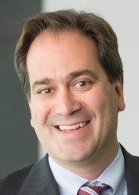 Chad Mirkin is the George B. Rathmann Professor of Chemistry, Professor of Medicine, Professor of Chemical and Biological Engineering, Professor of Biomedical Engineering, and Professor of Materials Science and Engineering at Northwestern University. He is also the Director of Northwestern's International Institute for Nanotechnology. He is a leading expert on nanotechnology, including nano-scale manufacturing and applications of nanomaterials in medicine. He is a member of the National Academy of Sciences and the National Academy of Engineering, and he is the recipient of over 60 national and international awards, including the Feynman Prize in Nanotechnology, the $500,000 Lemelson-MIT Prize, and the Sackler Prize. Mirkin is the cofounder of three companies, Nanosphere, NanoInk, and Auarsense, all of which are commercializing applications of nanotechnology in medicine and the semiconductor industry.
Chad Mirkin is the George B. Rathmann Professor of Chemistry, Professor of Medicine, Professor of Chemical and Biological Engineering, Professor of Biomedical Engineering, and Professor of Materials Science and Engineering at Northwestern University. He is also the Director of Northwestern's International Institute for Nanotechnology. He is a leading expert on nanotechnology, including nano-scale manufacturing and applications of nanomaterials in medicine. He is a member of the National Academy of Sciences and the National Academy of Engineering, and he is the recipient of over 60 national and international awards, including the Feynman Prize in Nanotechnology, the $500,000 Lemelson-MIT Prize, and the Sackler Prize. Mirkin is the cofounder of three companies, Nanosphere, NanoInk, and Auarsense, all of which are commercializing applications of nanotechnology in medicine and the semiconductor industry.
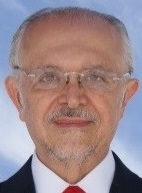 Mario J. Molina is a Professor of Chemistry and Biochemistry at the University of California, San Diego and the Center for Atmospheric Sciences at the Scripps Institution of Oceanography, as well as Director of the Mario Molina Center for Energy and Environment in Mexico City. He received the Nobel Prize in Chemistry in 1995 for his role in elucidating the threat to the Earth's ozone layer of chlorofluorocarbon gases. The only Mexican-born Nobel laureate in science, he served on PCAST for both Clinton terms. He is a member of both the National Academy of Sciences and the Institute of Medicine. Dr. Molina was awarded the Presidential Medal of Freedom in 2013.
Mario J. Molina is a Professor of Chemistry and Biochemistry at the University of California, San Diego and the Center for Atmospheric Sciences at the Scripps Institution of Oceanography, as well as Director of the Mario Molina Center for Energy and Environment in Mexico City. He received the Nobel Prize in Chemistry in 1995 for his role in elucidating the threat to the Earth's ozone layer of chlorofluorocarbon gases. The only Mexican-born Nobel laureate in science, he served on PCAST for both Clinton terms. He is a member of both the National Academy of Sciences and the Institute of Medicine. Dr. Molina was awarded the Presidential Medal of Freedom in 2013.
 Craig Mundie is President of Mundie & Associates which counsels CEO’s on the strategic effects of evolving information technologies. At the end of 2014 Mundie retired after a twenty-two year career at Microsoft. During his transition year he was the Senior Advisor to the CEO, before which he was Chief Research and Strategy Officer since 2007. For the last 15 years he was also Microsoft's principal technology-policy liaison to many governments worldwide. Mundie spent his entire career involved with start-up activities spanning diverse fields including software, minicomputing, supercomputing, consumer electronics and healthcare. He joined Microsoft to develop non-PC software platform technologies after departing as CEO from Alliant Computer Systems, which he co-founded in 1982 and took public in 1987. Previously he worked at Data General Corporation and received his BSEE and MSICS degrees from Georgia Tech. Mundie serves on the boards of directors for the Institute for Systems Biology and Raintree Oncology Corporation. He is also on the advisory boards of Aurasense Therapeutics and Madrona Venture Group. Mundie is collaborating with the CEO of the Cleveland Clinic and the President of Case Western Reserve University to develop a technology strategy for their joint initiative to build a new medical school. Mundie served for Presidents Clinton, Bush and Obama on the NSTAC. President Obama appointed him in 2009 to the PCAST, on which he still serves. He served on the Markle Task Force on National Security in the Information Age and is currently a member of the Markle Initiative for America's Economic Future. Mundie is a member of the Council on Foreign Relations and helps guide their program on Digital and Cyberspace Policy. He counsels the Center for Strategic and International Studies on their Institute for Digital Innovation. Mundie is on the program committee for, and attends, the annual Bilderberg Meetings.
Craig Mundie is President of Mundie & Associates which counsels CEO’s on the strategic effects of evolving information technologies. At the end of 2014 Mundie retired after a twenty-two year career at Microsoft. During his transition year he was the Senior Advisor to the CEO, before which he was Chief Research and Strategy Officer since 2007. For the last 15 years he was also Microsoft's principal technology-policy liaison to many governments worldwide. Mundie spent his entire career involved with start-up activities spanning diverse fields including software, minicomputing, supercomputing, consumer electronics and healthcare. He joined Microsoft to develop non-PC software platform technologies after departing as CEO from Alliant Computer Systems, which he co-founded in 1982 and took public in 1987. Previously he worked at Data General Corporation and received his BSEE and MSICS degrees from Georgia Tech. Mundie serves on the boards of directors for the Institute for Systems Biology and Raintree Oncology Corporation. He is also on the advisory boards of Aurasense Therapeutics and Madrona Venture Group. Mundie is collaborating with the CEO of the Cleveland Clinic and the President of Case Western Reserve University to develop a technology strategy for their joint initiative to build a new medical school. Mundie served for Presidents Clinton, Bush and Obama on the NSTAC. President Obama appointed him in 2009 to the PCAST, on which he still serves. He served on the Markle Task Force on National Security in the Information Age and is currently a member of the Markle Initiative for America's Economic Future. Mundie is a member of the Council on Foreign Relations and helps guide their program on Digital and Cyberspace Policy. He counsels the Center for Strategic and International Studies on their Institute for Digital Innovation. Mundie is on the program committee for, and attends, the annual Bilderberg Meetings.
 Ed Penhoet is Associate Dean of Biology at the University of California, Berkeley and Director of Alta Partners. He serves on the boards of directors of aTyr Pharma, Cymabay Therapeutics, Immune Design, and Scynexis. A co-founder of Chiron, Ed served as the Company’s President and Chief Executive Officer from its formation in 1981 until 1998. He was a member of the Independent Citizens Oversight Committee for the California Institute of Regenerative Medicine (CIRM). From 2004-2008 he served as the President of the Gordon and Betty Moore Foundation where he is currently a board member. For 10 years prior to founding Chiron, Ed was a faculty member of the Biochemistry Department of the University of California, Berkeley. From July 1998-July 2002, Ed was Dean of the School of Public Health at the University of California, Berkeley. He is a member of the US Institute of Medicine and the American Academy of Arts and Sciences. He serves on the board of Children’s Hospital & Research Center Oakland.
Ed Penhoet is Associate Dean of Biology at the University of California, Berkeley and Director of Alta Partners. He serves on the boards of directors of aTyr Pharma, Cymabay Therapeutics, Immune Design, and Scynexis. A co-founder of Chiron, Ed served as the Company’s President and Chief Executive Officer from its formation in 1981 until 1998. He was a member of the Independent Citizens Oversight Committee for the California Institute of Regenerative Medicine (CIRM). From 2004-2008 he served as the President of the Gordon and Betty Moore Foundation where he is currently a board member. For 10 years prior to founding Chiron, Ed was a faculty member of the Biochemistry Department of the University of California, Berkeley. From July 1998-July 2002, Ed was Dean of the School of Public Health at the University of California, Berkeley. He is a member of the US Institute of Medicine and the American Academy of Arts and Sciences. He serves on the board of Children’s Hospital & Research Center Oakland.
 Barbara Schaal is the Dean of the Faculty of Arts and Sciences and the Mary-Dell Chilton Distinguished Professor at Washington University in St. Louis. An evolutionary biologist, she is recognized for her work on the genetics of plant species. She is known particularly for her studies that use DNA sequences to understand evolutionary processes such as gene flow, geographical differentiation, and the domestication of crop species. She graduated from the University of Illinois, Chicago with a degree in biology, and she received a doctorate from Yale University in 1974. She was on the faculties of the University of Houston and the Ohio State University before joining Washington University in 1980, where she served as chair of the biology department. Dr. Schaal served recently as Vice President of the National Academy of Sciences, and she is Chair of the Division on Earth and Life Studies of the National Research Council.
Barbara Schaal is the Dean of the Faculty of Arts and Sciences and the Mary-Dell Chilton Distinguished Professor at Washington University in St. Louis. An evolutionary biologist, she is recognized for her work on the genetics of plant species. She is known particularly for her studies that use DNA sequences to understand evolutionary processes such as gene flow, geographical differentiation, and the domestication of crop species. She graduated from the University of Illinois, Chicago with a degree in biology, and she received a doctorate from Yale University in 1974. She was on the faculties of the University of Houston and the Ohio State University before joining Washington University in 1980, where she served as chair of the biology department. Dr. Schaal served recently as Vice President of the National Academy of Sciences, and she is Chair of the Division on Earth and Life Studies of the National Research Council.
 Eric Schmidt joined Google in 2001 and helped grow the company from a Silicon Valley startup to a global leader in technology. Eric is currently the Executive Chairman of Alphabet, responsible for the external matters of all of the holding company's businesses, including Google, Inc., advising their CEOs and leadership on business and policy issues. He served as Google’s Chief Executive Officer from 2001-2011, overseeing the company’s technical and business strategy alongside founders Sergey Brin and Larry Page. Under his leadership Google dramatically scaled its infrastructure and diversified its product offerings while maintaining a strong culture of innovation.
Eric Schmidt joined Google in 2001 and helped grow the company from a Silicon Valley startup to a global leader in technology. Eric is currently the Executive Chairman of Alphabet, responsible for the external matters of all of the holding company's businesses, including Google, Inc., advising their CEOs and leadership on business and policy issues. He served as Google’s Chief Executive Officer from 2001-2011, overseeing the company’s technical and business strategy alongside founders Sergey Brin and Larry Page. Under his leadership Google dramatically scaled its infrastructure and diversified its product offerings while maintaining a strong culture of innovation.
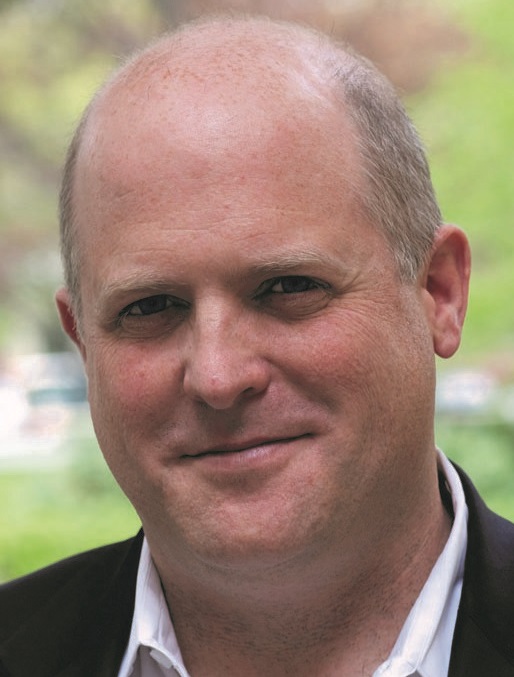 Daniel Schrag is the Sturgis Hooper Professor of Geology in the Department of Earth and Planetary Sciences at Harvard University and Professor of Environmental Science and Engineering in the School of Engineering and Applied Sciences. He is also Director of the Harvard University Center for Environment. He was trained as a geochemist and has employed a variety of methods to study the carbon cycle and climate over a wide range of Earth's history, using those insights to better constrain how the Earth will be affected by climate change in the future. Awarded a MacArthur Prize Fellowship in 2000, he has recently been working on technological approaches to mitigating future climate change, including geologic carbon sequestration.
Daniel Schrag is the Sturgis Hooper Professor of Geology in the Department of Earth and Planetary Sciences at Harvard University and Professor of Environmental Science and Engineering in the School of Engineering and Applied Sciences. He is also Director of the Harvard University Center for Environment. He was trained as a geochemist and has employed a variety of methods to study the carbon cycle and climate over a wide range of Earth's history, using those insights to better constrain how the Earth will be affected by climate change in the future. Awarded a MacArthur Prize Fellowship in 2000, he has recently been working on technological approaches to mitigating future climate change, including geologic carbon sequestration.

